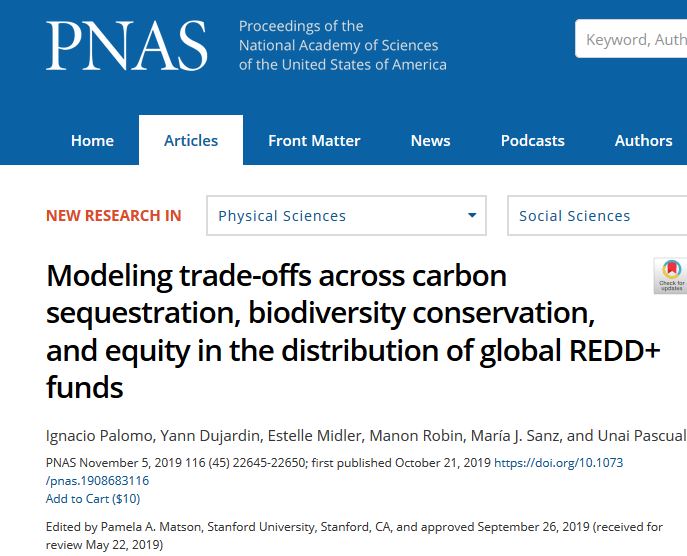September 19, 2019
Published by BC3Research Iñaki Arto Ignacio Cazcarro Anil Markandya at September 19, 2019
Categories
Environmental change constitutes a risk to the sustainability of economic activities, within deltas and the wider regions and economies within which they sit. Slow acting environmental change and shocks from extreme events can affect economic activities. Using multiregional input-output tables, extended to include environmental dimensions and combined with Computable General Equilibrium models, flows of economic activities and ecosystem services across supply chains are assessed.
Do you like it?
October 22, 2019
Published by BC3Research Maria Jose Sanz at October 22, 2019
Categories
The Paris Agreement introduced an ambitious goal of limiting warming to 1.5 °C above pre-industrial levels. Here we combine a review of modelled pathways and literature on mitigation strategies, and develop a land-sector roadmap of priority measures and regions that can help to achieve the 1.5 °C temperature goal. Transforming the land sector and deploying measures in agriculture, forestry, wetlands and bioenergy could feasibly and sustainably contribute about 30%, or 15 billion tonnes of carbon dioxide equivalent (GtCO2e) per year, of the global mitigation needed in 2050 to deliver on the 1.5 °C target, but it will require substantially more effort than the 2 °C target
Do you like it?
November 11, 2019
Published by BC3Research Ignacio Palomo Maria Jose Sanz Unai Pascual at November 11, 2019
Categories
The program on Reducing Emissions from Deforestation and Forest Degradation (REDD+) is one of the major attempts to tackle climate change mitigation in developing countries. REDD+ seeks to provide result-based incentives to promote emission reductions and increase carbon sinks in forest land while promoting other cobenefits, such as the conservation of biodiversity.
Do you like it?
February 6, 2020
Published by BC3Research Agustín del Prado Bosco Lliso at February 6, 2020
Categories
This infographic video has been produced as part of the BC3- Basque Centre for Climate Change contribution to the COP25 in Madrid (Pabellón España-5th December 2019) and under the H2020 project iSAGE.
The video attempts to graphically illustrate why ruminants are not to be blamed for climate change. Different arguments are shown regarding the differences between emissions from biogenic methane from ruminants and fossil fuel CO2, differences in production systems and the uncertainties regarding N2O emissions and the baseline of reference to compare emissions from ruminants compared with other activities.
The video idea and script have been developed by Agustin del Prado (BC3) and Pablo Manzano (University Of Helsinki), animated and produced by Yelena Grigorenko and voice over by Bosco Lliso (BC3).
Do you like it?




